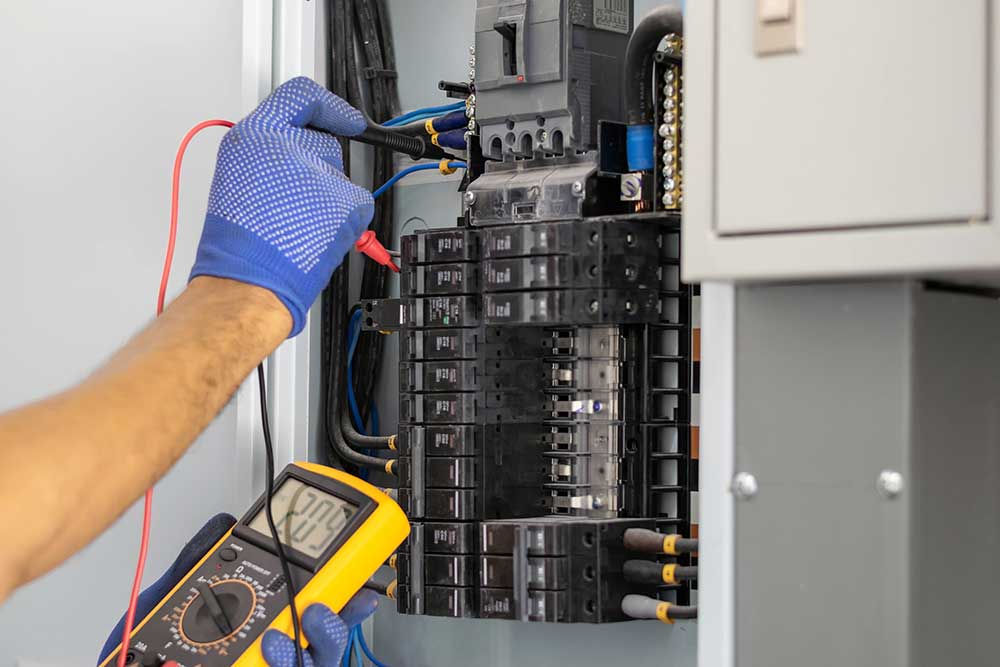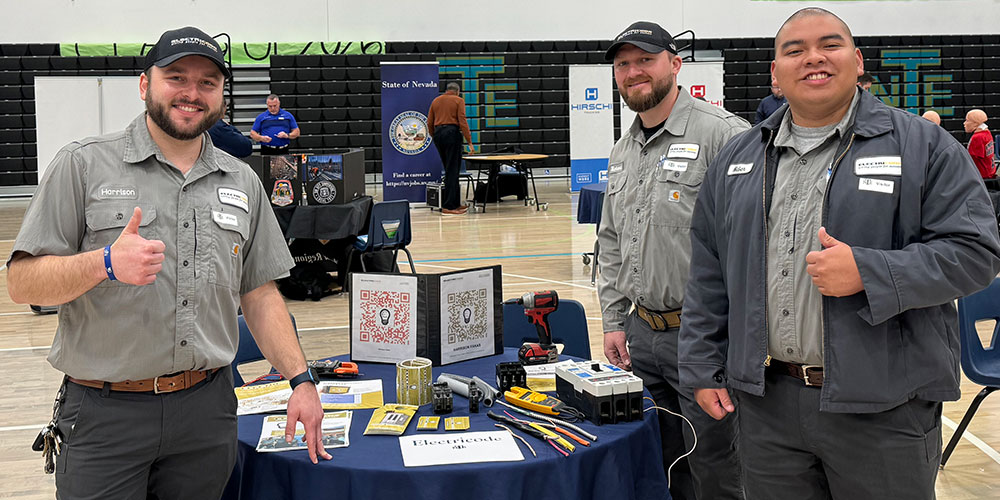
What to Expect During an Electrical Inspection
Working quietly behind the scenes, the electrical system in your Las Vegas, NV, home provides electrical current to all your devices and appliances. Capable of lasting up to 70 years, this system should be updated or replaced every 25 years and inspected every three to five.
During electrical inspections, electricians ensure that all wiring, outlets, and other features remain in good working order and can support ongoing electricity demand. Here is everything you can expect when having an electrical inspection performed.
The Standard Electrical Inspection Checklist
When scheduled every three to five years, electrical inspections serve as reliable prevention against electrical fires, electrical shock, and many other hazards. Inspectors verify that exposed elements like outdoor circuit breaker boxes and meters haven’t been damaged by humidity, rainwater, pests, or temperature extremes.
They also make sure that changes in the building haven’t altered the basic requirements for an electrical system. For instance, if you’ve made any upgrades, such as adding one or more ceiling fans or installing an in-floor wine cooler, it may be necessary to refine your electrical system to accommodate them.
Inspectors also:
- Verify that all recent and past installations are up to code
- Test the electrical meter and safety switches
- Check for proper wiring at all ground fault circuit interrupter (GFCI) outlets
- Verify circuit breaker capacities
They also assess the integrity of prior repairs and test all carbon monoxide detectors and fire alarms throughout the building.
Electrical Inspections in New Homes
Even if your home is relatively new and has a modern, high-performing electrical system, routine inspections remain essential. Early on in an electrical system’s life span, these visits allow professionals to identify installation-related problems, such as outlet wires that have been forced or backstabbed into the small holes at the back of outlet receptacles rather than anchored to receptacle screws. Your inspector will check for malfunctioning GFCI outlets, unprotected wiring, incorrect wiring types, and improper wire lengths.
When electrical inspections are lender-required and performed before the sale of homes, detailed notations are made of all features that aren’t up to code. Before buyers receive funding, these problems must be addressed to limit the potential for electrical fires and electrocution and to meet the basic requirements of home insurance companies. These services are also necessary after addressing major home events such as floods or fires.
Dedicated Circuits and Breaker Boxes
At circuit breaker boxes, electricians search for evidence of electrical overload, overcrowding, and mechanical or structural issues. Buzzing, humming, and clicking noises, singe marks, and the faint scent of burning wires are all indications of problems with these features.
Your circuit breaker box may need to be replaced or updated if your breakers frequently trip or if your lights flicker off and on whenever major appliances kick into action.
In bathrooms and kitchens, electricians verify that all major appliances have dedicated circuits. They additionally ensure that everything has been properly grounded in areas with high levels of moisture. This way, plugging in your hair dryer, curling iron, or toaster when a room is filled with humidity won’t result in electrical shock.
The Main Electrical Panel
When inspecting your electrical panel, your electrician will check for several common, installation-related problems:
- Insufficient clearance
- Panel box screws with sharp tips that cause wire damage
- Incorrectly sized circuit breakers
- Branch wires made from aluminum
Overcrowding, outdated equipment, and underpowered panels are other issues identified during these assessments.
Defects at the Electrical Meter
In addition to accurately logging wattage, your electrical meter must be correctly installed. Inspectors look for evidence of significant wear and faulty connections. You might have problems with your electrical meter if your utility bills don’t match your household’s actual energy use, the power to your home suddenly goes out, or the meter display is incorrect or blank. As long as your household is using electricity, the reading on this display should be both visible and constantly changing.
The Best Care for Electrical Systems is Preventive Care
Problems within residential electrical systems sometimes reveal themselves through foul odors, strange sounds, and unpredictable or all-around poor performance. However, electrical systems can also have issues that fester unnoticed behind drywall, box covers, and other building elements. By having your home’s electrical system inspected every three to five years, you can identify small and still-developing problems before they spiral out of control.
Our team is proud to serve residents of Las Vegas, NV and the surrounding communities. We install ceiling fans, EV charging stations, whole-house surge protection, electrical panels, smoke detectors, and more. We also provide comprehensive electrical system inspections.
To schedule an appointment, get in touch with [company_name] today!






